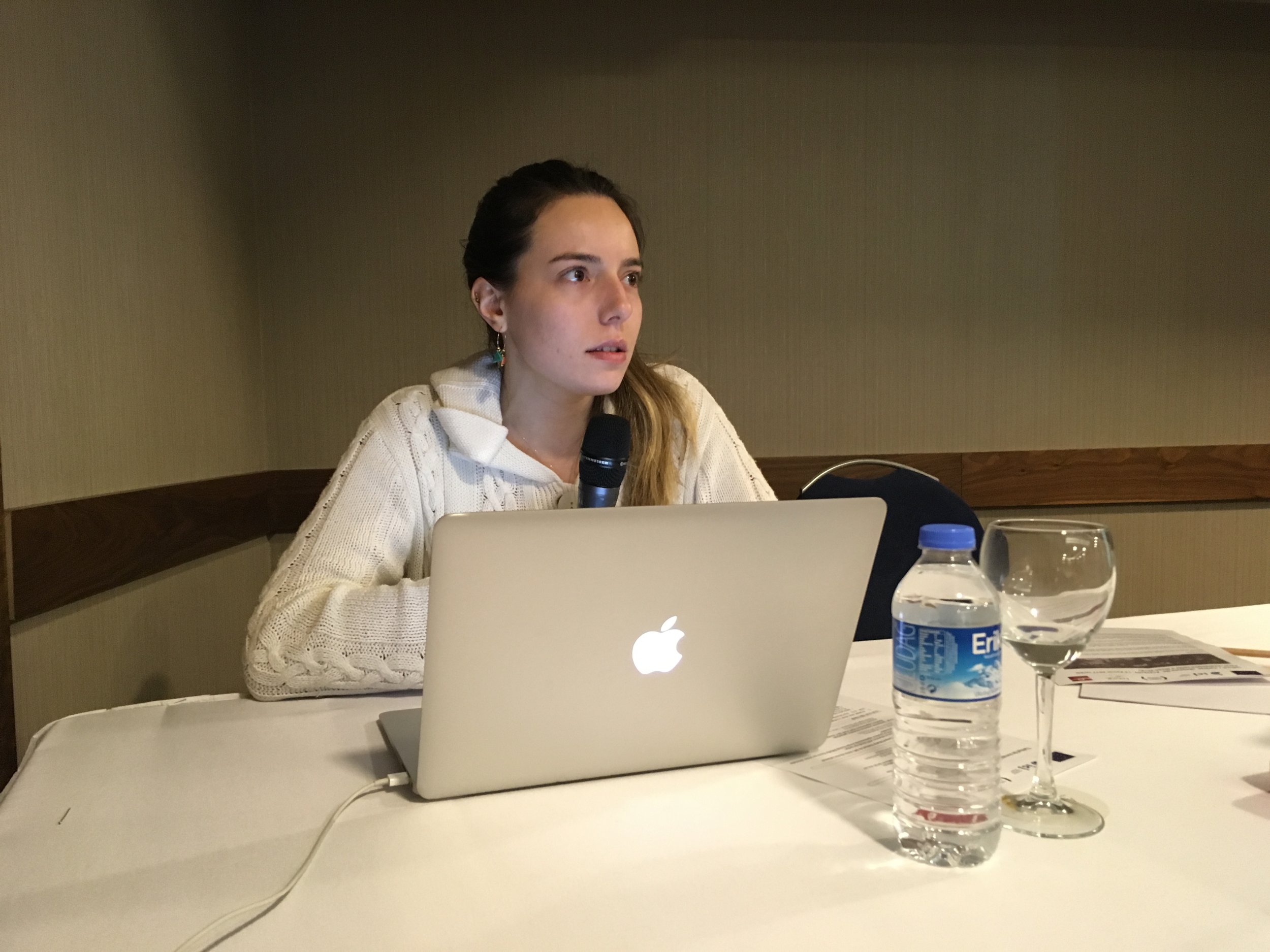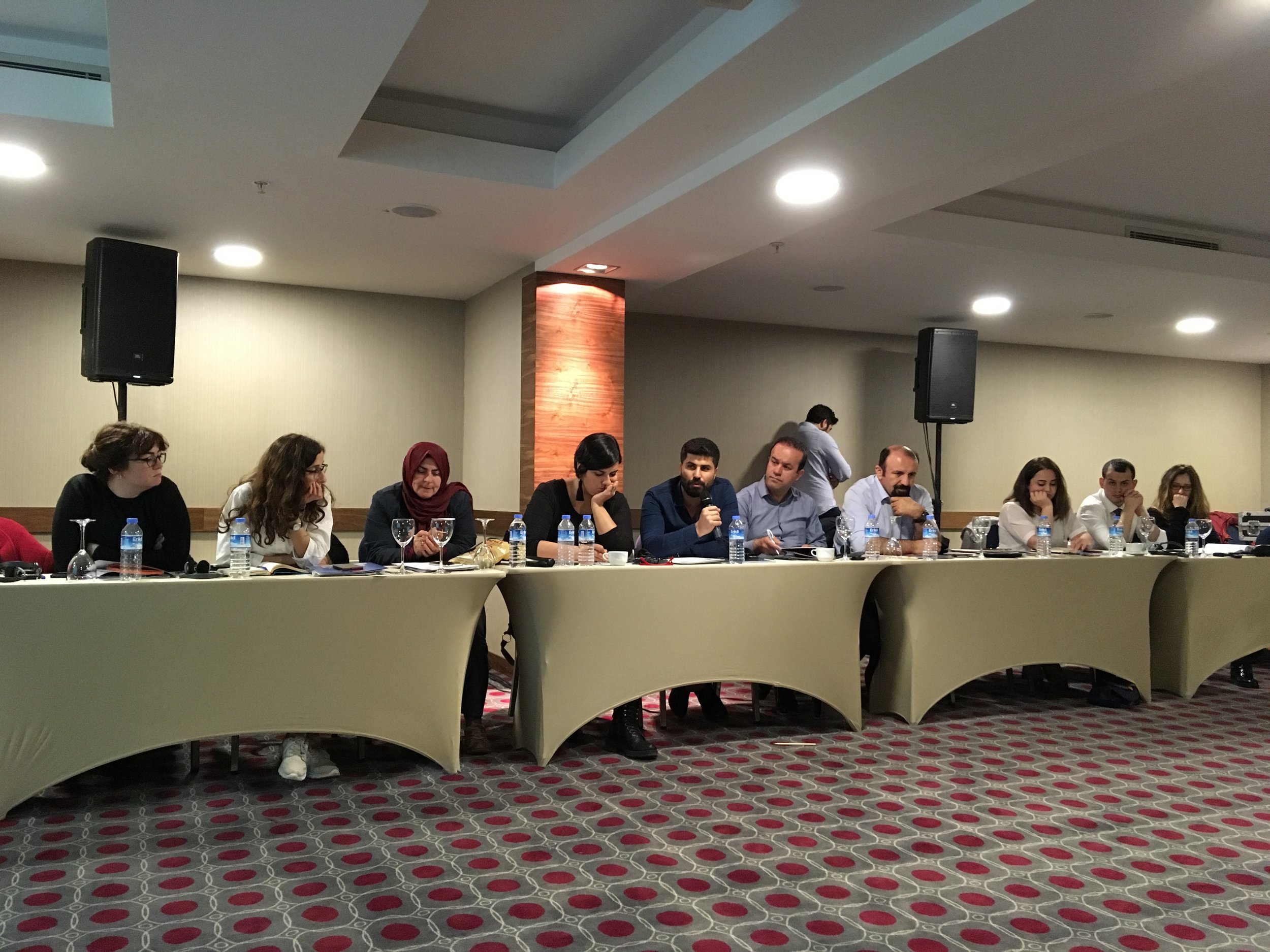Promoting ECtHR judgment implementation in Turkey
/Joint ICJ/İHOP/EIN workshop aims to enhance civil society engagement with the CM’s supervision of the execution of Strasbourg Court judgments
Representatives of NGOs and members of several bar associations from across Turkey came together in Ankara on 12 April to attend a workshop organised jointly by the International Commission of Jurists (ICJ), Human Rights Joint Platform (İHOP), and EIN. The aim of this one-day event was to raise awareness among civil society of the Strasbourg avenues that exist for advocating for the full and effective implementation of the judgments of the European Court of Human Rights (ECtHR, ‘the Court’).
Turkey’s implementation record leaves much to be desired. At the end of last year, according to the Committee of Ministers’ latest Annual Report, the country ranked second (after Russia) in terms of the overall number of cases pending before the Committee of Ministers (‘CM’). This figure stood at 1,237 on 31 December 2018. 162 of these cases have been designated as ‘leading’ cases, signalling that they reveal structural or systemic problems which Turkey has to remedy by adopting ‘general measures’ to prevent similar violations in the future. What is just as concerning than the sheer number of outstanding implementation issues is the fact that nearly 50 leading cases have been pending full execution for more than a decade, as a search on the HUDOC-EXEC database reveals.
The cases in respect of Turkish pending before the CM cover a wide ground. Some of the main issues highlighted by the Council of Europe’s (CoE) Department for the Execution of Judgments (DEJ) include excessive use of force by police authorities; the failure to ensure fairness in criminal proceedings; the repeated jailing of conscientious objectors; and unjustified pre-trial detention of journalists. Civil society actors play a crucial role in submitting information and evidence to the CM regarding the real impact of any reforms adopted to remedy these issues, as well as prevailing shortcomings. Their knowledge and assessment from the ground are instrumental in challenging any unduly positive presentation of the state of implementation by the state.
Yet, this knowledge is rarely brought to the CM’s attention. A key advocacy avenue for civil society for implementation of ECtHR judgments remains strikingly underutilised, namely the use of Rule 9 submissions to the CM by NGOs or national human rights associations (NHRIs). AS regards Turkey, NGOs have only ever intervened on roughly 30 occasions, concerning merely about a dozen cases. It is worth noting, moreover, that many of these communications have come from foreign-based organisations – a fact that EIN’s local members and partners attributed mainly to a lack of familiarity of Turkish civil society actors with the CM judgment execution process and the role that NGOs can play therein.
Photo: EIN
Against this backdrop, one key objective of ICJ/İHOP and EIN’s workshop – which we hope will be but the first in a series of events in Turkey – was to introduce the participants to this mechanism, and have them start working on actual Rule 9 submissions in a small number of important cases awaiting full execution. Following a kick-off panel discussion on ‘Promoting implementation of Strasbourg Court judgments: a key to making progress in human rights protections in Turkey?’, EIN Co-Director Anne-Katrin Speck shared a number of tips with the participants about how to write effective Rule 9 submissions. She stressed, inter alia, the importance for NGOs of deriving the scope of the measures they call for in their submissions from the Court’s judgment, recalling that the CM was constrained, in its examination, by what the ruling actually requires. Broader concerns, she added, could be channelled to other CoE bodies, such as the Parliamentary Assembly and the Commissioner for Human Rights –the EIN Secretariat can help with that.
This introduction to effective Rule 9 submissions was followed by a presentation from EIN Chair, Professor Başak Çalı, on İHOP’s engagement with the CM judgment execution process to advance freedom of association and peaceful protests in Turkey: İHOP’s latest Rule 9 submission in the case of Oya Ataman group of cases – concerning freedom of association and the right to protest peacefully – is a model submission in many respects, from which others may want to draw inspiration: it is concise (5 pages), clearly sets out its aim from the outset, contains concrete evidence of ongoing violations of the right to peaceful assembly (referring to both shortcomings in the legislation and recent practical examples where rallies were prohibited), and it concludes with specific recommendations to the Committee of Ministers, both substantial and procedural. Just as importantly, the Rule 9 was submitted in good time before the CM’s ‘human rights’ (DH) meeting where the case was due to be assessed, which ensured that it would have maximum impact by being included in the Secretariat’s ‘Notes’ on the agenda.
All of these features of a good Rule 9 submission are set out in EIN’s Handbook for NGOs, injured parties and their legal advisers. We were very pleased to use the occasion of this workshop to launch a Turkish version of this handbook, which had been translated with the support of İHOP, and thanks to funding from the EU. Each participant went home with a copy of the Turkish handbook, which is the most comprehensive guide on how NGOs and applicants’ representatives can send communications to the CM and use other advocacy avenues in Strasbourg to promote the implementation of ECtHR judgments.
Break-out group exercises in the afternoon of the workshop provided an opportunity for the participants – most of whom had, prior to the meeting, been unfamiliar with the CM judgment execution process – to work on actual Rule 9 submissions in three cases pending implementation and pertaining to, respectively, freedom of assembly, freedom of association, and the prohibition of inhuman or degrading treatment of persons in detention. Supported by experienced facilitators, the lawyers and NGO representatives developed the scope, content and recommendations in a Rule 9.2 submission. The workshop concluded with a strategy brainstorming session on how implementation could be promoted more systematically and more effectively in Turkey.
Workshop participants expressed their eagerness to start working on actual Rule 9 submissions. Several participants established a working group on the very day of the event, whose aim it is to submit information to the CM concerning the case of Gülay Çetin v Turkey, concerning possibilities for release from remand prison for severely ill detainees. Others have pledged to engage their bar associations to collect evidence from lawyers about domestic court decisions that are at odds with the Strasbourg Court’s case law
EIN would like to thank its partners in organising this joint event, which formed part of the ICJ’s EU co-financed project Rebuilding and Ensuring Access to justice with civil society in Turkey (REACT), funded by the European Instrument for Democracy and Human Rights (EIDHR) of the European Union.
Photo: EIN
Is your NGO also considering preparing a Rule 9 communication? Consult EIN’s Handbook for NGOs on implementation of judgments of the European Court of Human Rights for helpful tips, and get in touch with us (director@einnetwork.org) if you are seeking further advice on how to research and draft your submission.







